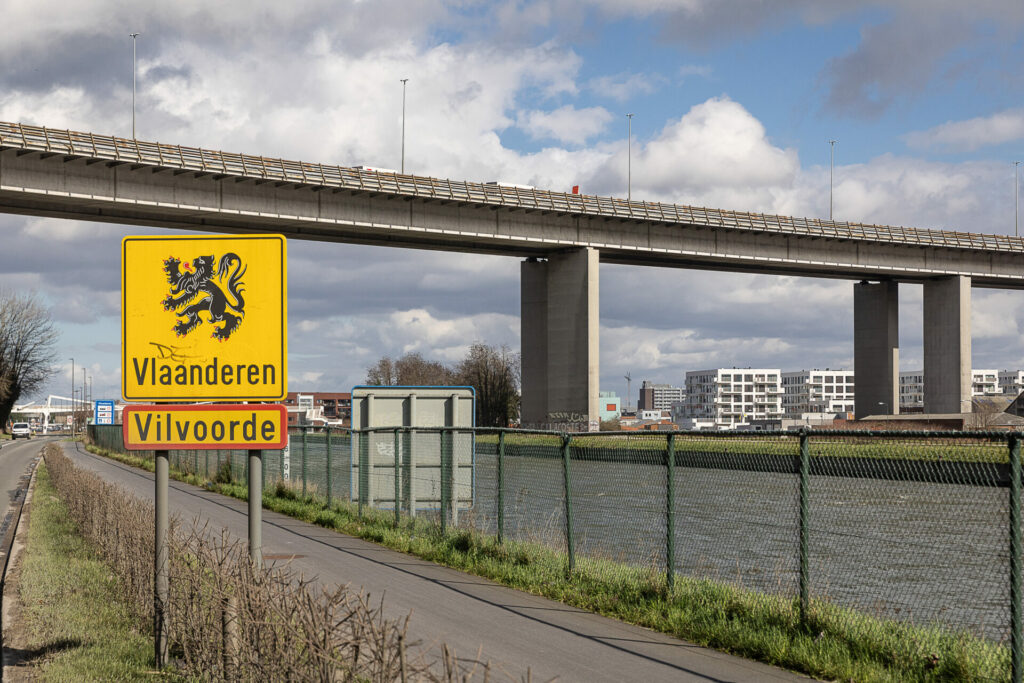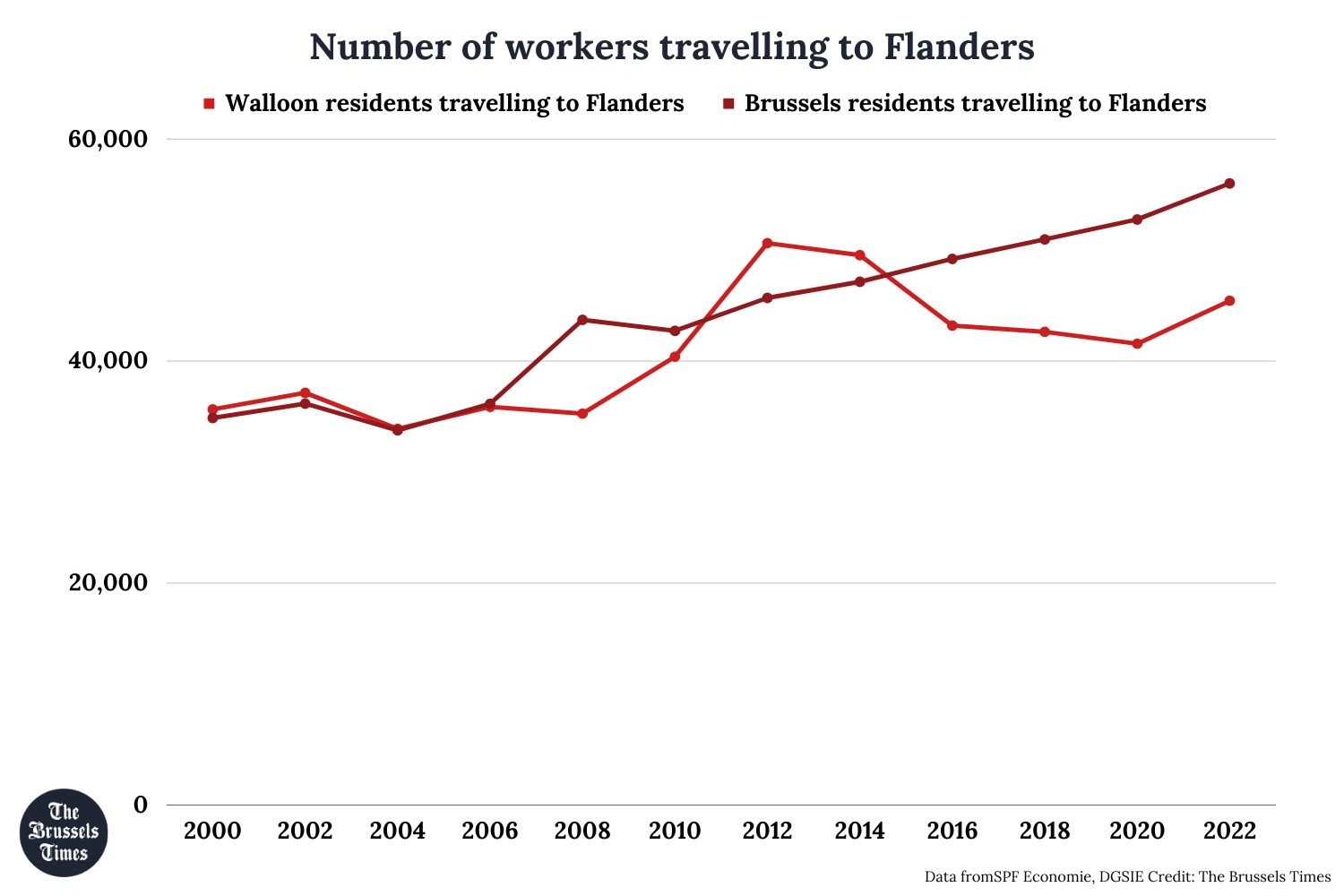Over 100,000 Walloon and Brussels residents commuted to Flanders for work in 2022. The Federal Government wants more workers to travel to Flanders, as it has the lowest number of unemployed people in the country and therefore needs workers from other regions to ensure economic growth.
In comparison to the 100,000 non-Flemish residents who make the trip to Flanders for work, 34,022 Flemish people commuted to Wallonia and a staggering 267,423 to the capital in 2022.
The Federal Government aims to get Belgium to an employment rate of 80% by 2030. Currently, Flanders boasts an employment rate of 76.7% and an unemployment rate of 3.2%. However, the other regions are lagging somewhat behind. Brussels has an employment rate of 65.2% with an unemployment rate of 11.5%, while Walloon figures are 71.9% and 5.6% respectively.
Consequently, the government wants to encourage job-seekers from Wallonia and Brussels to cross the linguistic border and work in Flanders, which needs to attract workers from outside the region to continue its economic growth. This phenomenon is called interregional mobility and is already a reality for a number of workers in Belgium – a number that has been steadily increasing over the past years.
The government seeks to keep the momentum going by giving incentives, such as allowing job seekers who go to work in another region to cumulate 25% of their allowance with their salary for three months. By considering that a job being located in another region is no longer a reason to turn it down, the hope is to encourage more people to look for work in Flanders.
Related News
- Four-day working week? Belgians still prefer five days, study suggests
- Smooth mobility: Ferries grow in popularity in Flanders
However, while the logic behind the numbers is solid, a barrier remains: mobility.
Many Flemish businesses and companies are located in smaller towns, out of the city. They are therefore much more difficult to reach for those who do not have a car, meaning some workers coming from Brussels or Wallonia may spend around two hours on public transport for their commute.


